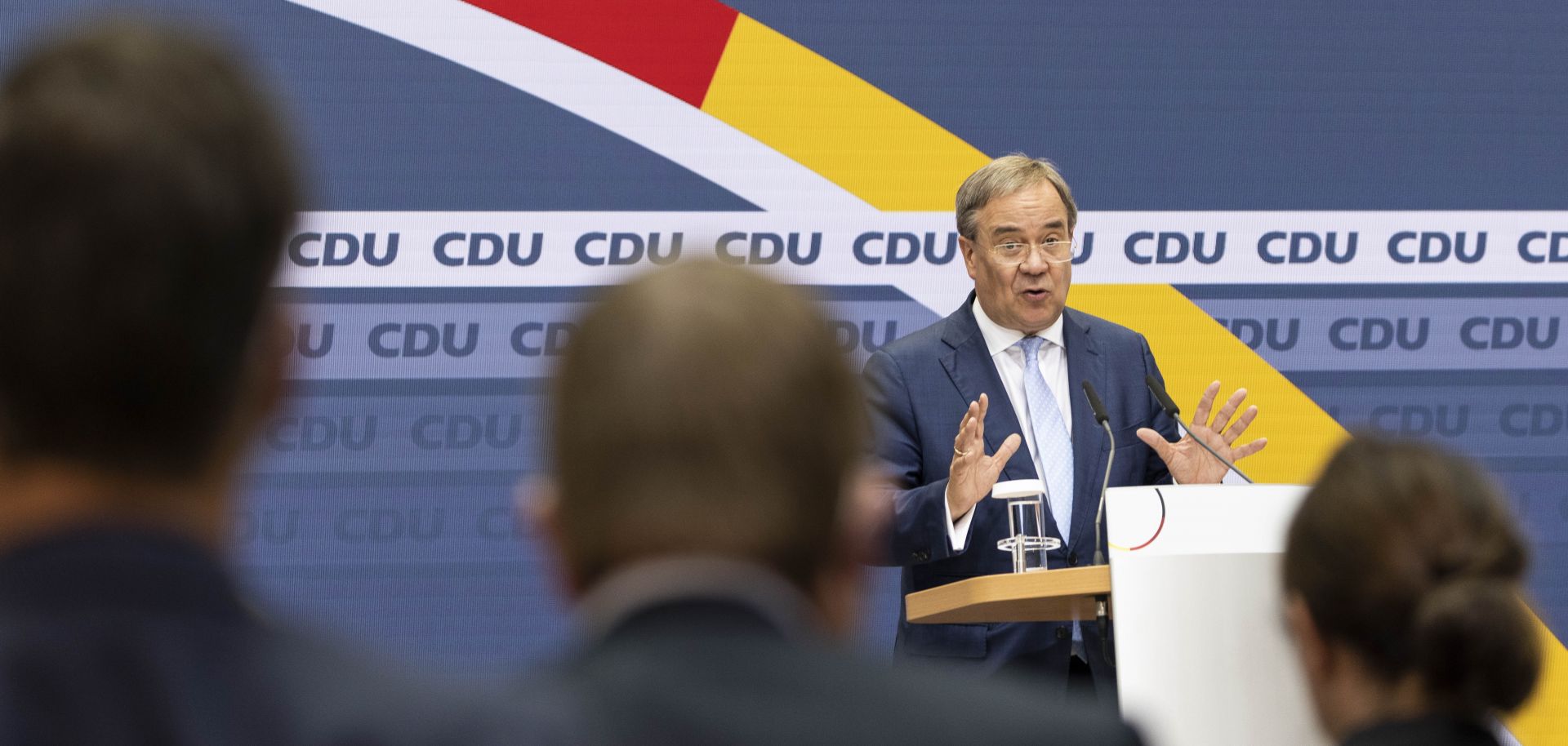Upcoming German coalition talks will likely result in a moderate government that ensures continuity on fundamental issues like EU and NATO membership. Disagreements over fiscal and environmental policy, however, will slow down the negotiations and risk their collapse. Germany’s Sept. 26 federal election has produced a fragmented Bundestag where an agreement between three parties will be needed to form a government. According to preliminary results released on Sept. 27, the progressive Social Democratic Party (SPD) won 25.7% of the vote, followed by the conservative Christian Democratic Union (CDU) with 24.1%, the environmentalist Greens with 14.8%, and the pro-business Free Democratic Party (FDP) with 11.5%. ...

